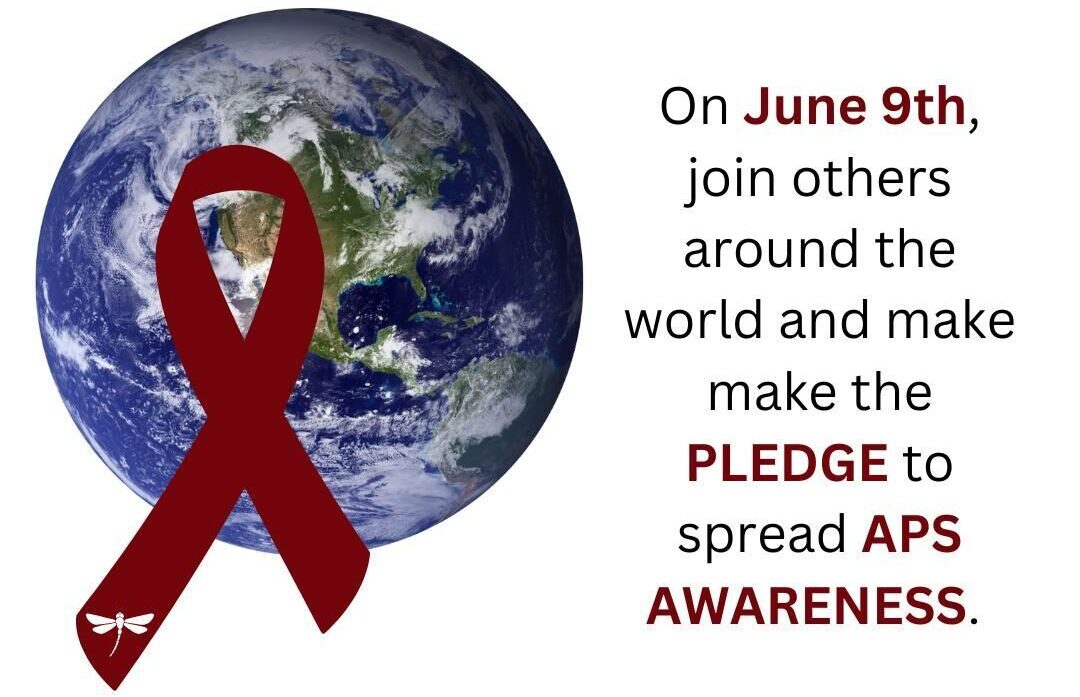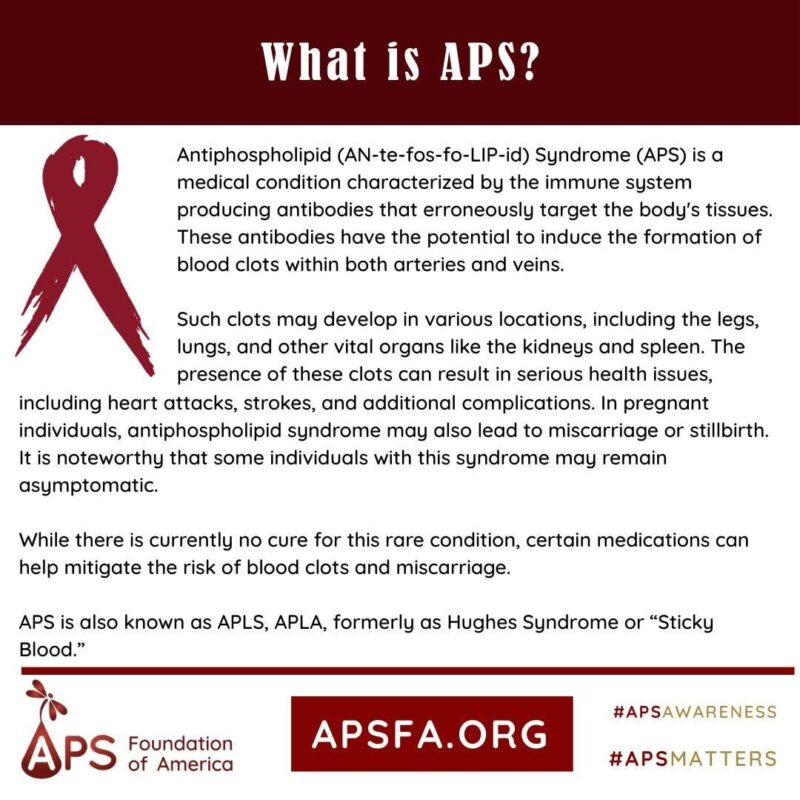
World APS Day: Shining a Light on a Silent but Life-Threatening Autoimmune Disorder
The APS Foundation of America has shared an important update on their official X page in recognition of World APS Day. The post emphasizes the urgent need to raise awareness about Antiphospholipid Syndrome (APS)—an incurable, life-threatening autoimmune disorder that increases the risk of dangerous blood clots.
“Today is World APS Day, the global awareness campaign to raise awareness of Antiphospholipid Syndrome and its impact on our lives.
APS is an incurable, life-threatening autoimmune condition that causes the blood to clot.”
What is APS?
APS occurs when the immune system mistakenly produces antibodies that target phospholipids—critical components of cell membranes—leading to an increased risk of:
- Deep vein thrombosis (DVT)
- Pulmonary embolism
- Stroke
- Recurrent miscarriage
- Catastrophic multiorgan thrombosis in severe cases
Despite its profound clinical impact, APS remains underdiagnosed and misunderstood.
Hemostasis Today proudly joins the global movement to raise awareness, promote early diagnosis, and support ongoing research into this devastating condition. As we commemorate World APS Day, we stand with patients, families, and advocates in calling for increased education, improved testing, and more targeted therapies.
Let today be a reminder: Clots can kill, but knowledge can save lives.

Follow us on Hemostasis Today for expert insights, clinical updates, and patient stories throughout APS Awareness Month.
-
Feb 2, 2026, 17:54Danny Gaskin: Nominations are Open for the BBTS Transfusion Practitioner Special Interest Group Award 2026
-
Feb 2, 2026, 17:44Important Webinar on Care for Patients with iTTP – ISTH
-
Feb 2, 2026, 17:21Tagreed Alkaltham: Some Risks Don’t Look Like Risks in Healthcare
-
Feb 2, 2026, 17:16Sifat Jubaira: Effect of Prolonged Tourniquet Application
-
Feb 2, 2026, 17:14Vivek Mahto: Understanding Deep Vein Thrombosis – Causes, Symptoms, and Prevention
-
Feb 2, 2026, 17:08Tareq Abadl: Heparin vs Warfarin
-
Feb 2, 2026, 17:07Mary Cushman: New Research on Aspirin Use in Pregnancy and Stroke Risk in Offspring
-
Feb 2, 2026, 16:52Aravind Palraj: Young Stroke is Never Just Stroke
-
Feb 2, 2026, 16:48Seyed Mohsen Jahromi Moghadam: Antithrombotic Therapy After Transcatheter Structural Heart Interventions

